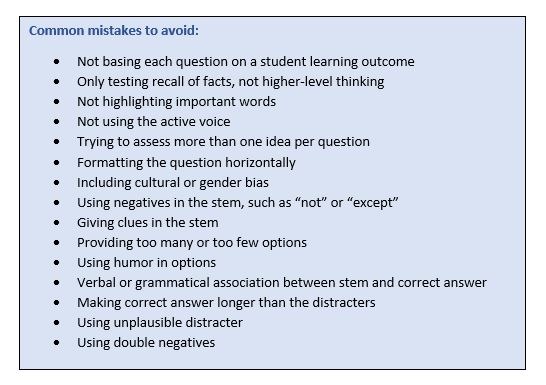How to Study for MCQ Exams?
Multiple Choice Questions (MCQs) are a common and challenging way to assess students’ knowledge in various fields. However, with the proper preparation and study techniques, acing MCQ exams can be a walk in the park. This article will outline how to study for MCQ exams, followed by a detailed guide on each step.
1. Understand the Exam Format
Before you start studying for MCQ exams, it’s essential to understand the exam format. MCQ exams consist of multiple questions, each with multiple answer options. You must select the correct answer(s) from the options provided. The questions may be based on any topic or subject, and the number of questions may vary from exam to exam. Understanding the exam format will help you prepare better and focus on suitable study materials.
2. Create a Study Plan
Creating a study plan is crucial when preparing for MCQ exams. A study plan will help you stay organized and manage your time effectively. Start by identifying the topics you must cover, then allocate specific times to study each subject. Be realistic when creating your study plan and ensure you have enough time to thoroughly cover all the material.
3. Use Active Learning Techniques
Active learning techniques are a great way to prepare for MCQ exams. Instead of just reading your study materials, actively engage with the material. Some active learning techniques include:
- Writing summaries of what you’ve learned
- Creating flashcards to test your knowledge
- Teaching the material to someone else
- Using mnemonics to remember essential information
4. Practice with Past Papers
Practising with past papers is an excellent way to prepare for MCQ exams. Past papers give you an idea of the types of questions you can expect on the exam and help you identify any knowledge gaps. Practice answering the questions under timed conditions to simulate the exam environment.
5. Develop Critical Thinking Skills
MCQ exams often require thinking critically and applying your knowledge to solve problems. Developing critical thinking skills can help you excel in MCQ exams. To create necessary thinking skills, try to:
- Analyze and evaluate information
- Synthesize information from multiple sources
- Compare and contrast different ideas
- Draw conclusions based on evidence
6. Stay Calm and Confident
Finally, staying calm and confident is essential when taking MCQ exams. Don’t let exam anxiety get the best of you. Take deep breaths, stay focused, and trust in your abilities. Remember, you’ve prepared well and are ready to ace the exam.
FAQs:
What are some common mistakes to avoid in MCQ exams?
Some common mistakes to avoid in MCQ exams include the following:
- Not reading the questions properly
- Rushing through the questions
- Second-guessing yourself too much
- Focusing too much on one question and running out of time
How can I improve my memory recall for MCQ exams?
Some tips to improve memory recall for MCQ exams include:
- Repeating information out loud
- Using visual aids to help remember information
- Associating information with something familiar
- Chunking information into smaller groups
How can I stay focused during long MCQ exams?
To stay focused during long MCQ exams, try to:
- Take short breaks every hour
- Stay hydrated and eat healthy snacks
- Keep your environment quiet and distraction-free
- Use active reading techniques to stay engaged
How can I manage my time effectively during MCQ exams?
To manage your time effectively during MCQ exams, try to:
- Read the instructions and questions carefully
- Skim through the questions to identify the easier ones
- Allocate time-based on the number of questions and difficulty level
- Don’t spend too much time on one question
What should I do if I don’t know the answer to a question in an MCQ exam?
If you don’t know the answer to a question in an MCQ exam, don’t panic. Try to eliminate the obvious wrong answers, and then make an educated guess based on your knowledge. Remember, you don’t lose marks for incorrect answers, so it’s better to guess than leave the question unanswered.


















